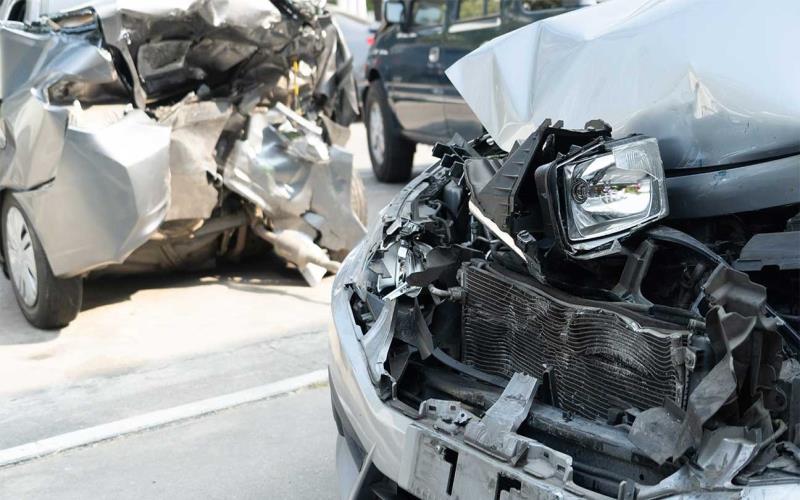After a car accident, knowing the steps to take is critical. Here’s advice from a reliable New Port Richey car accident attorney. By following these steps, you’ll easily manage the aftermath of a car accident.
When involved in a car accident, prioritize safety by moving your vehicle away from traffic and seeking medical assistance. Document the incident with photos and witness statements, exchange information with others involved, and promptly contact your insurance company while consulting a car accident attorney for legal guidance. Keep thorough records of medical expenses, obtain necessary documentation, and report the incident to authorities if required by law to protect your rights and ensure a smoother recovery process.
Seek Medical Assistance
After a car mishap, it is essential to get medical help. Even if you feel alright, it’s important to get checked by a healthcare expert. They may spot hidden injuries that you may not see right away.
Plus, you need medical documentation for any insurance claims or legal cases that may come up from the accident.
Keep in mind that not all injuries are visible right away. Certain injuries, like whiplash or internal bleeding, can take time to show symptoms. Getting medical help as soon as possible can ensure early diagnosis and treatment of any underlying conditions. In a car accident, individuals can contact 1-800 ASK-GARY, a free 24/7 auto accident and injury helpline, which provides an immediate free referral to auto accident injury doctors with the necessary medical skills and credentials to help car accident victims.
The healthcare professional will check you when you seek medical help after a car accident. They may do tests such as X-rays or CT scans to see if there are any fractures or internal injuries. This documentation can be used if there are debates about the cause and extent of your injuries.
Also, getting medical attention can stop further issues and quicken the healing process. Waiting for treatment can worsen certain conditions and slow down the healing process. Medical help guarantees that any needed treatment plans, medications, or therapies are done immediately.
In addition to the physical part of getting medical help, it also sets up a record of your injuries and treatments for insurance reasons. Insurance companies may need evidence of injuries to give payment for medical costs or lost wages.
To sum up, getting medical help after a car accident is essential to protecting your health and rights. Doing this lets healthcare professionals examine your condition carefully and provide the right treatment if needed. It also sets up a record of your injuries for insurance claims and legal proceedings. Remember to underestimate the significance of getting medical attention after an accident; it could make a huge difference in your recovery.
Contact Law Enforcement
Contacting law enforcement after a car accident is key. It creates an official record and provides help. The police can collect important data, such as statements and photos. These are useful for insurance and legal matters.
Provide accurate information to officers. Include location, time, and a description of what occurred. Cooperate and answer their questions honestly.
Law enforcement can manage traffic and make sure everyone’s safe. This may involve redirecting vehicles or calling tow trucks. Involving law enforcement right away can help the situation.
Gather Information
After a car crash, gathering all the needed info for legal and insurance matters is vital. Exchange contact info, get witness statements, and take scene photos.
To have a smooth claims process, get accurate contact details from all involved. This includes full names, numbers, addresses, and insurance info. Collect witness statements, too, can provide useful evidence if accounts differ.
Take photos of the scene to show vehicle damage and anything that might have caused the crash. Get clear images of license plates, vehicle positions, and road conditions.
Keep records of expenses connected to the accident. This may include medical bills, repair, and transport costs related to injury or damages. This will prove useful when seeking compensation from insurers or taking legal action.
Gathering this info promptly and thoroughly increases your chances of success. It provides evidence to prove fault and secure fair compensation for damages. Every detail matters when making a strong case after a car accident.
Notify Your Insurance Company
Don’t overlook notifying your insurance company when dealing with a car accident! You must inform them immediately to guarantee a smooth claims process and avoid legal repercussions. Here’s a guide on how to notify your insurer:
- Collect all the info
- Contact your insurer
- Follow their procedure
- Be honest and truthful
- Record conversations
- Cooperate in their investigation
Please notify your insurance company after an accident to avoid coverage for damages or injuries. By notifying them promptly, you ensure that you have taken steps to protect yourself and secure any benefits or compensation you may be entitled to. Take advantage of insurance coverage – immediately notify your insurance company after a car accident! Timely reporting is vital for a smooth claims process and protecting yourself from legal consequences.
Consult with a Car Accident Attorney
After a car accident, it’s key to see a lawyer who specializes in them. They can provide you with help and advice. They’ll ensure you know your rights and help you with the legal process. Plus, they’ll make sure you get what you deserve.
The lawyer will listen to your story. They’ll get any evidence, like police reports or witnesses. They know the laws for your state. They can negotiate with insurance companies. They’ll do paperwork and deadlines, so you don’t have to.
Document Your Damages
Documenting damages after a car accident is key for legal and insurance reasons. It provides proof of the harm caused and helps your compensation claim. Here are four steps to do that:
- Take photos: Capture clear pics of the accident scene, damaged vehicles, visible injuries, skid marks, signs/signals, and the overall layout. Take shots from different angles and distances for a full view.
- Get witness statements: If there were any witnesses, get their contact info. Reach out to them later for their statements about what they saw and heard. This testimony can help your case.
- Record medical treatments: Note all treatments related to accident injuries: hospital visits, doctor consultations, tests, meds/therapies, and future treatment plans.
- Preserve documents: Keep all papers related to the accident and its aftermath: police reports, insurance letters, repair estimates, towing/rental car receipts, and more.
File an Insurance Claim or Lawsuit
A car accident can be a traumatic experience. Taking the right steps after it is crucial to obtain compensation for damages or injuries.
- Gather info and evidence
- Pursue a lawsuit
- Seek legal advice early
- Don’t delay filing an insurance claim or pursuing a lawsuit
Follow up on Medical Treatment
After a car crash, it is vital to prioritize your health. This means getting any needed medical treatment. Going for check-ups and following the treatment plan is a must.
Continuing with medical care is important. It lets healthcare professionals track progress and adjust care as needed. This also ensures any hidden injuries or issues get addressed quickly, so there are no long-term problems.
You also show that you are serious about recovery. Insurance companies and legal reps may see this as proof of injury and the impact on life. Going to appointments and doing therapies shows you are taking action to heal.
Not the following treatment can be used against you. Insurers or people in court may say that the injuries weren’t that bad if you didn’t care enough to get help.
To get fair compensation, be diligent about medical treatments. Doing this gives a strong base for the case.
Stay Informed and Seek Legal Guidance
It’s essential to stay informed and get legal guidance after a car accident to protect your rights. Here are five steps to follow:
- Document the event: Take pictures, get contact details from witnesses, and get a copy of the police report.
- Get medical attention: No matter if you don’t see injuries, visiting a medical professional is crucial.
- Tell your insurer to report the accident quickly, giving them all the relevant info.
- Seek a car accident attorney: An experienced lawyer can help navigate the legal process, deal with insurers, and ensure you get fair compensation.
- Keep evidence: Record any medical treatment and write down any pain or suffering caused by the accident.
Every car accident is different, so you need legal guidance tailored to your case for the best result. Talking to your lawyer is vital throughout the process. They will negotiate with insurers and speak for you in court if needed.









